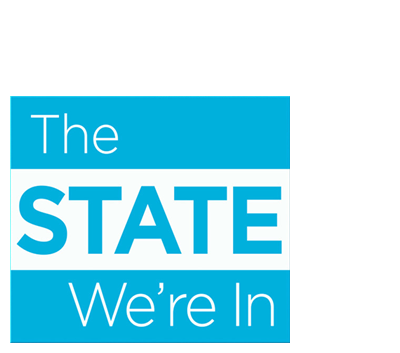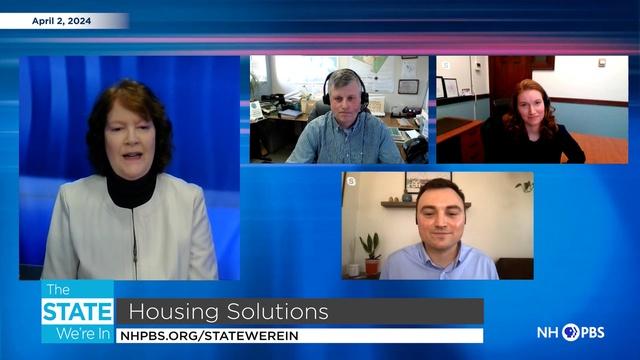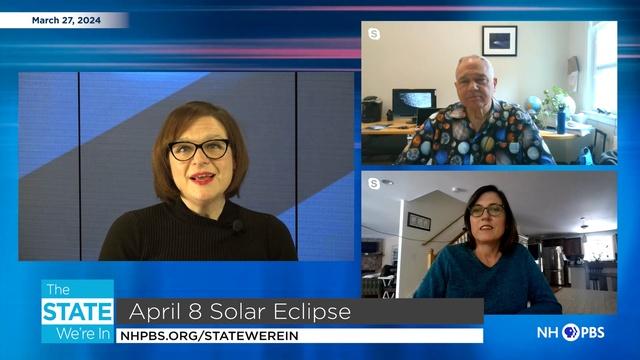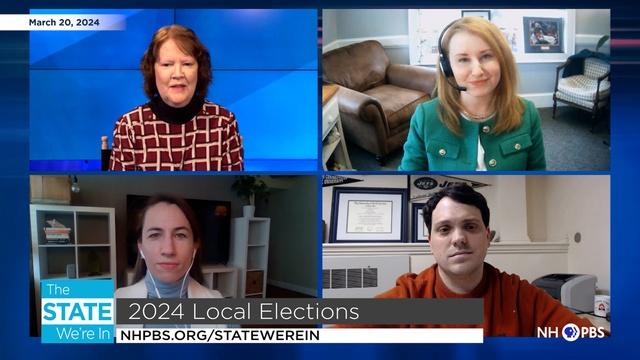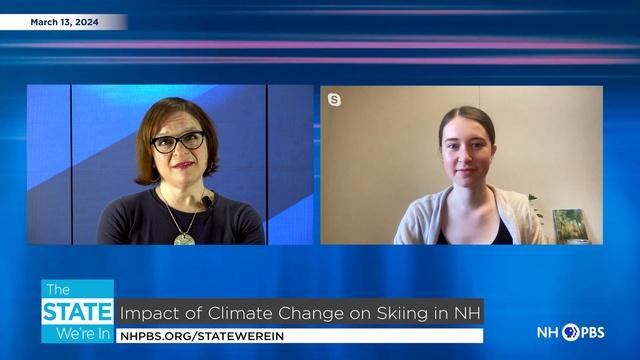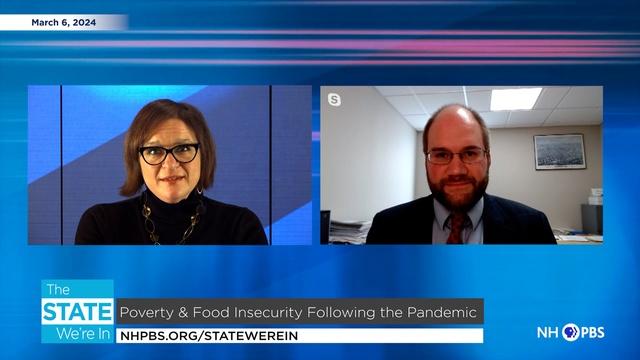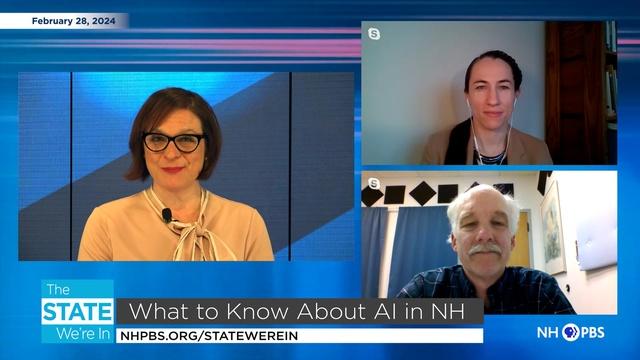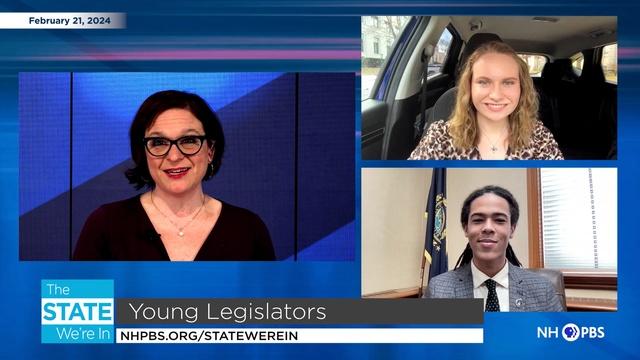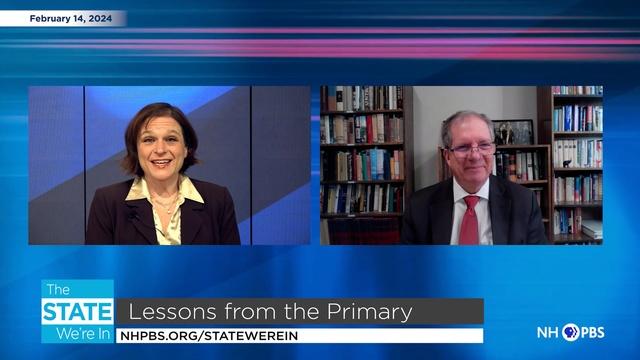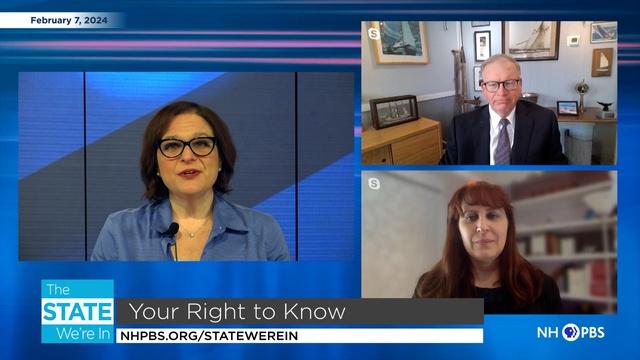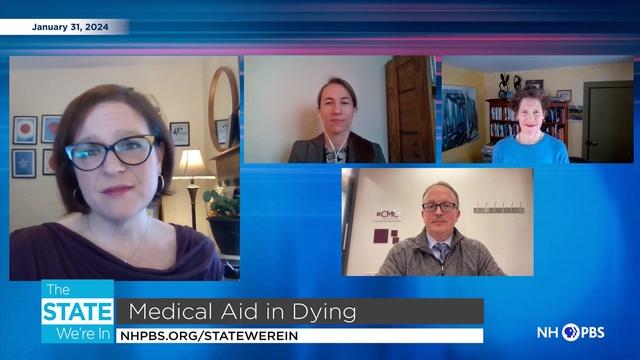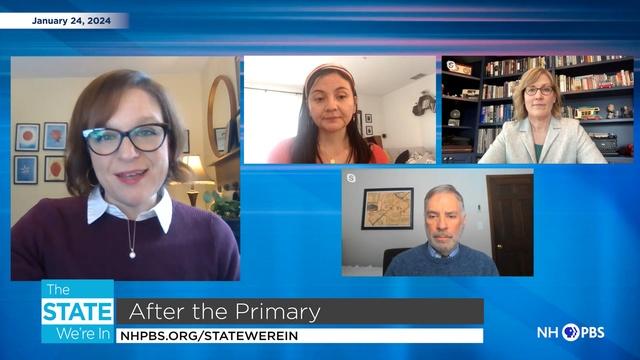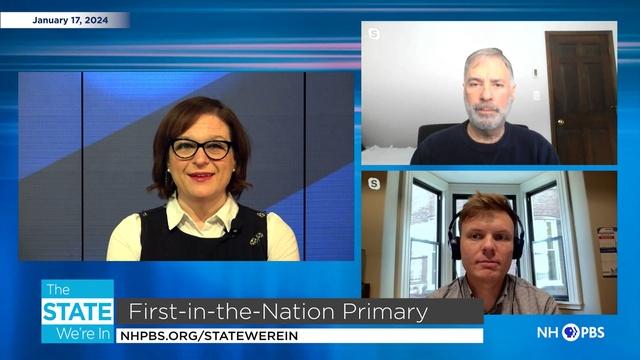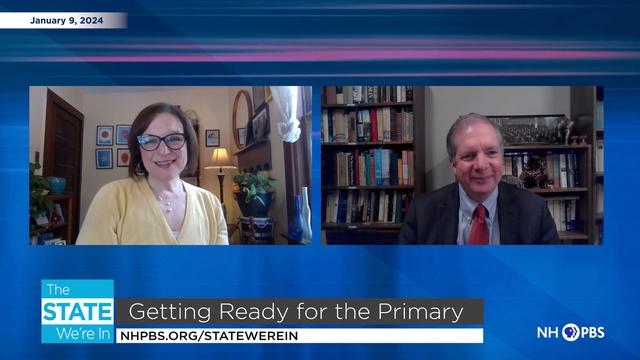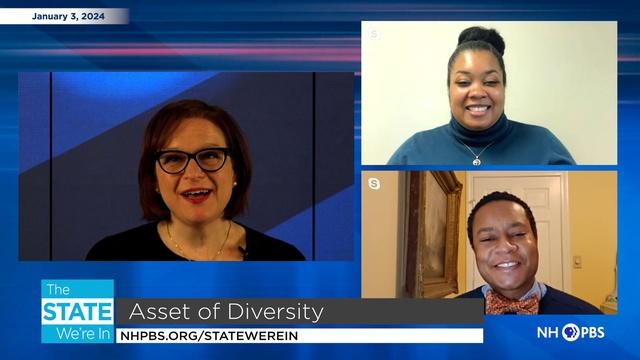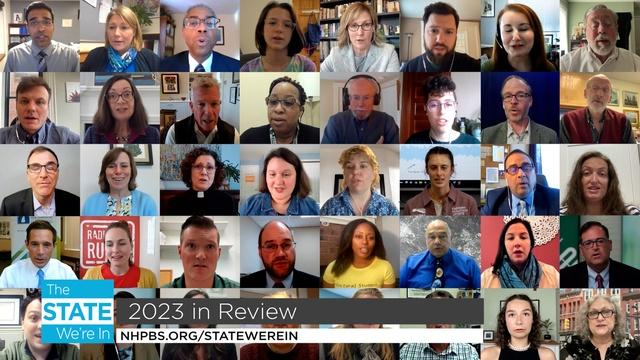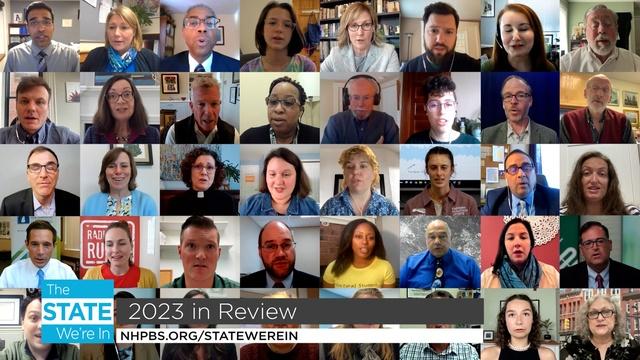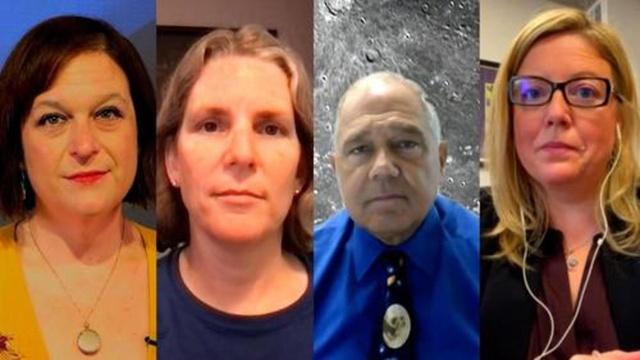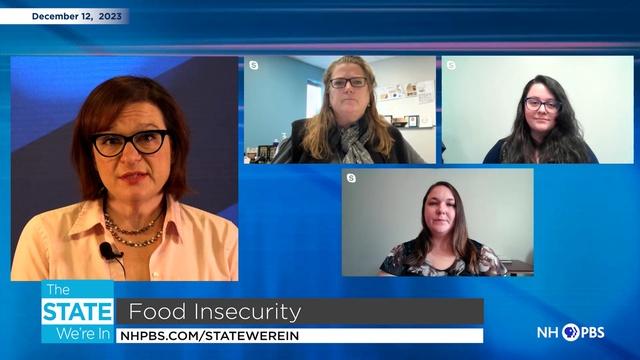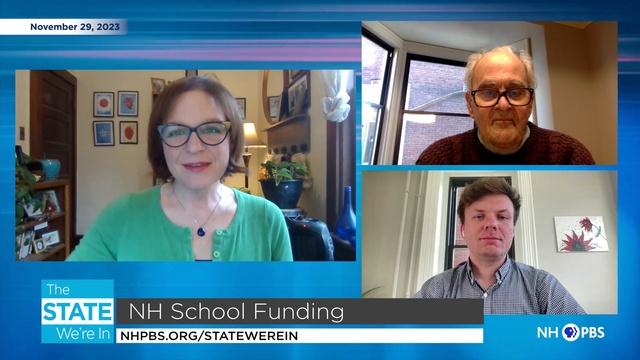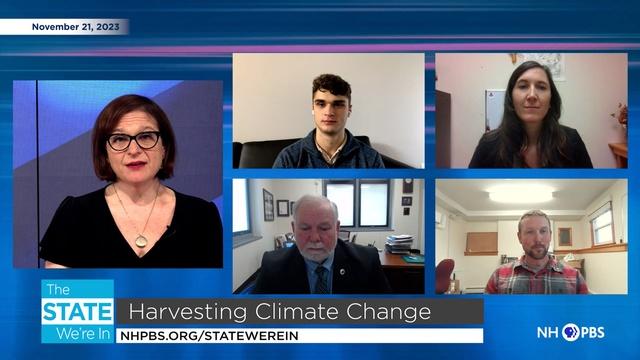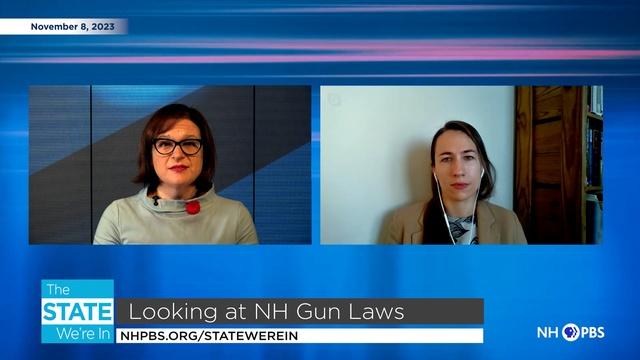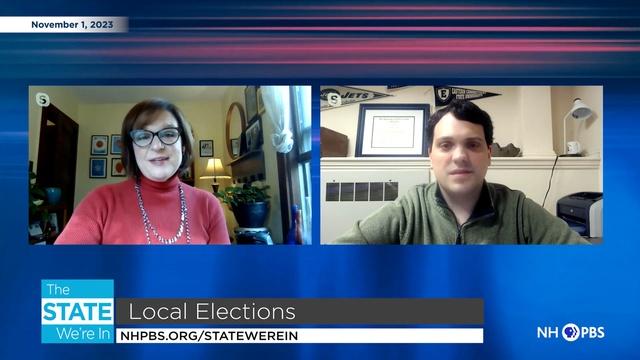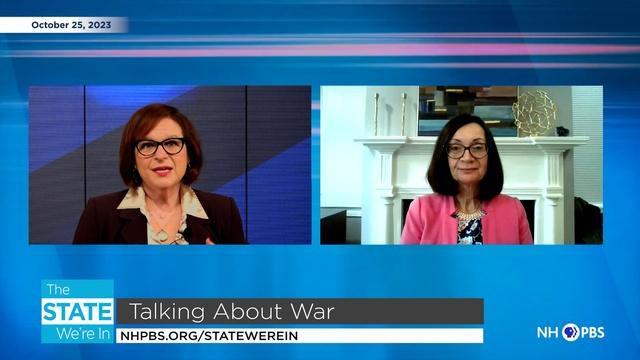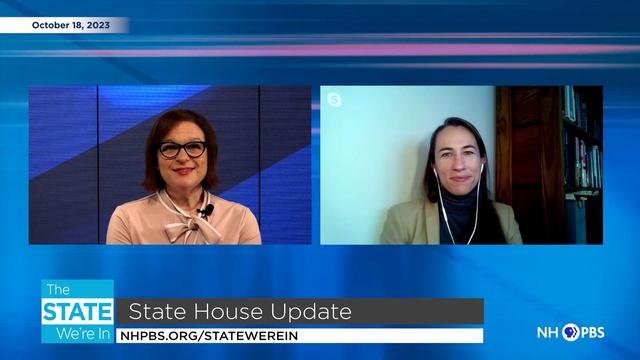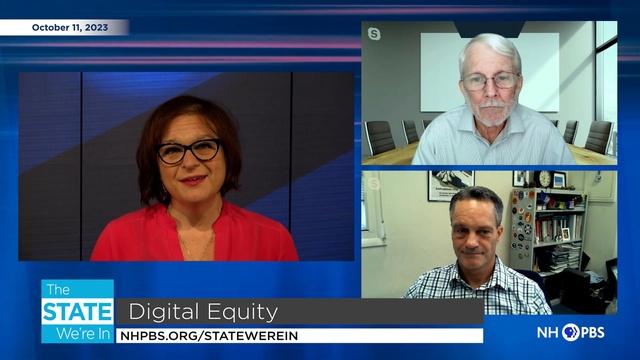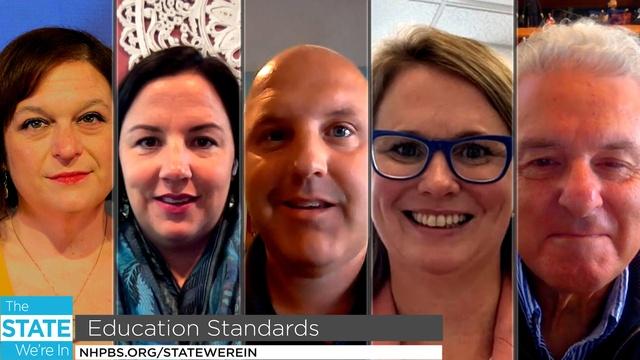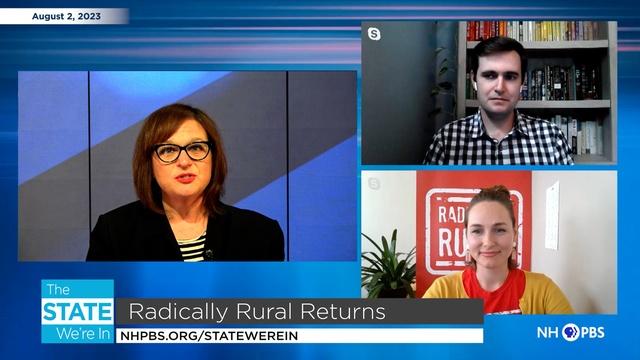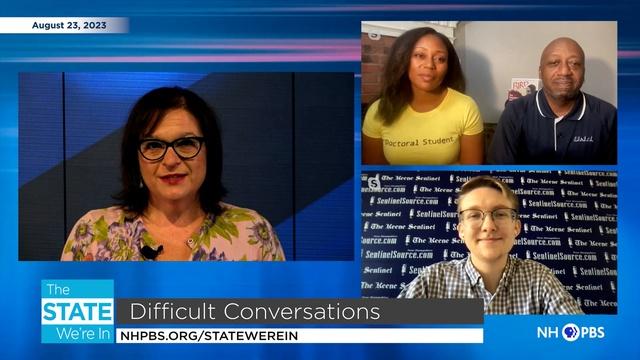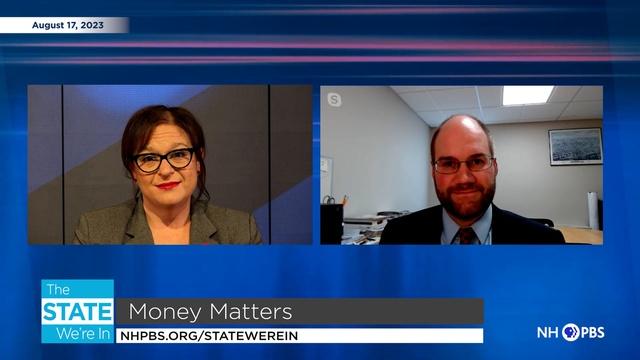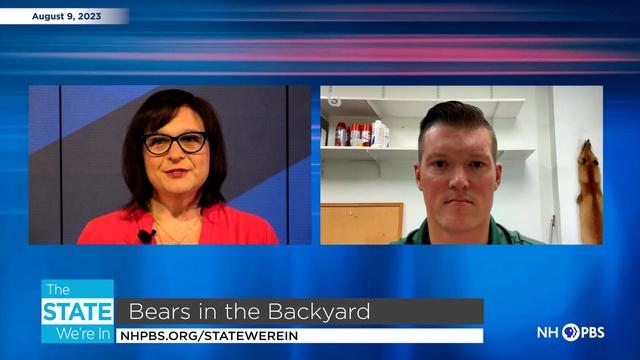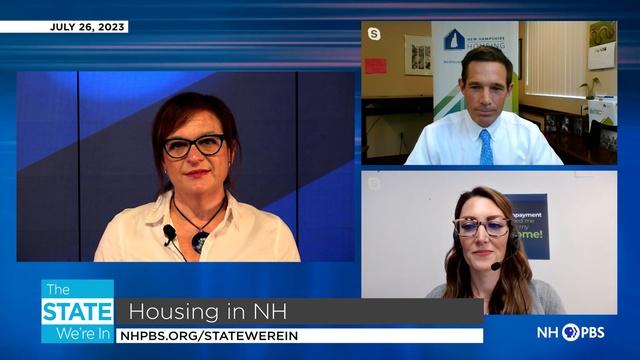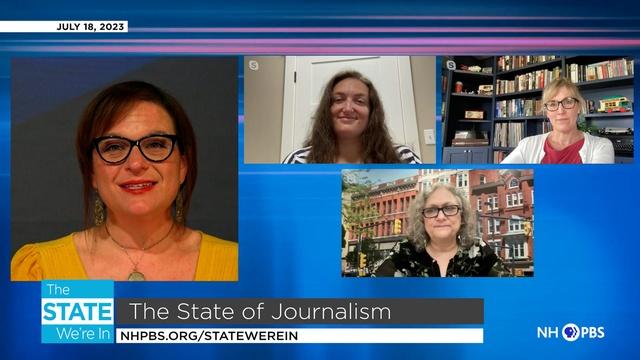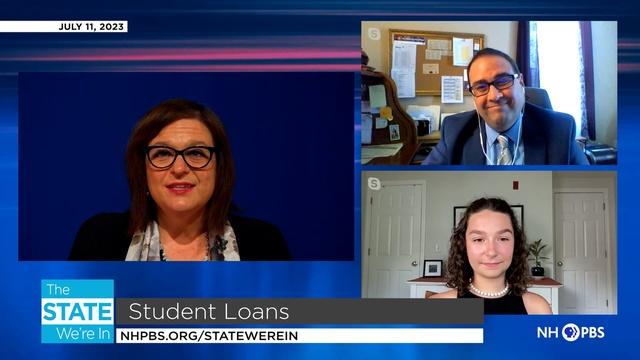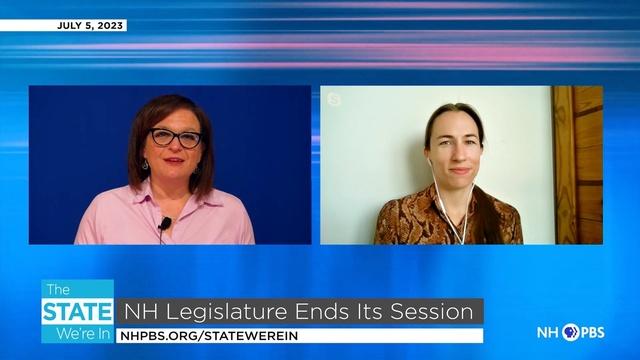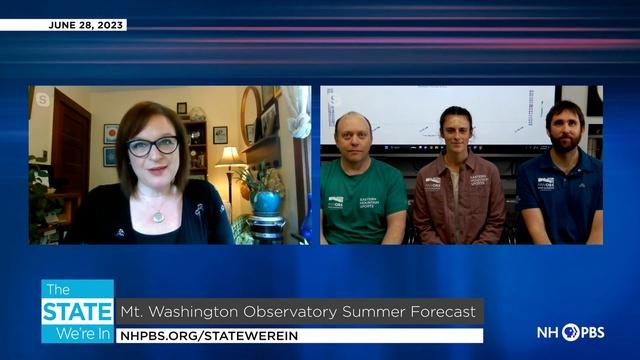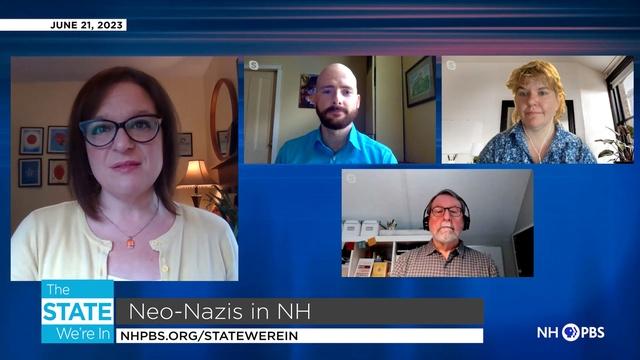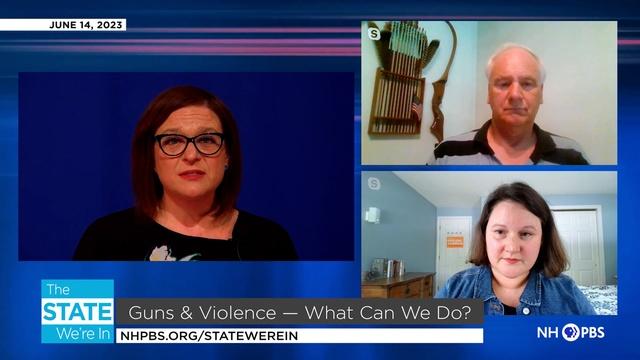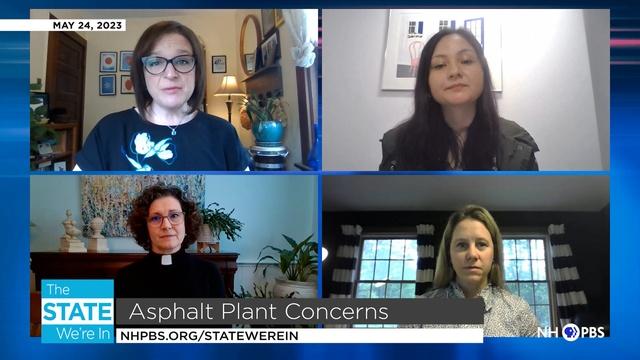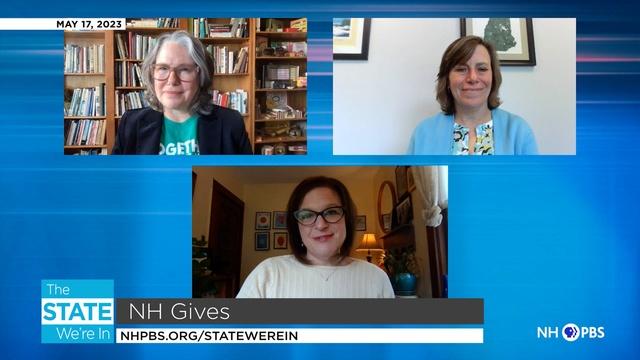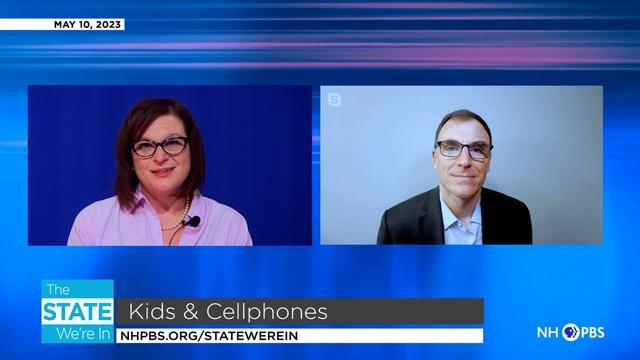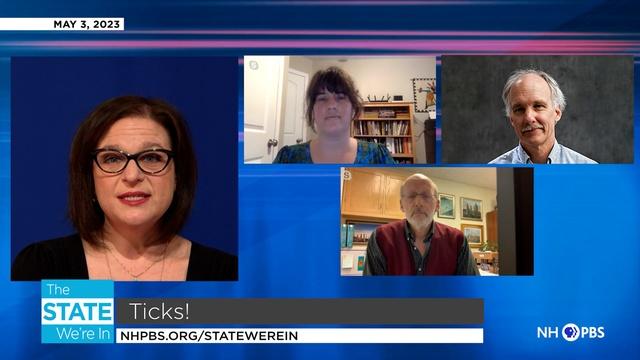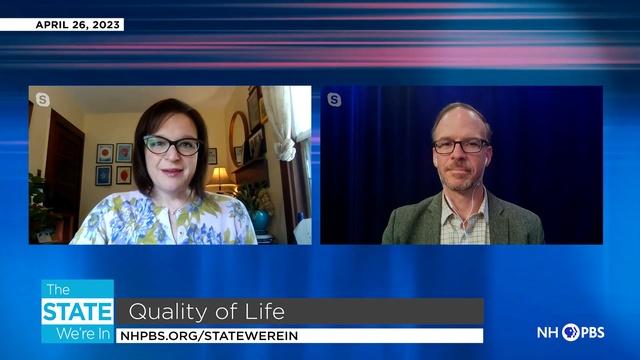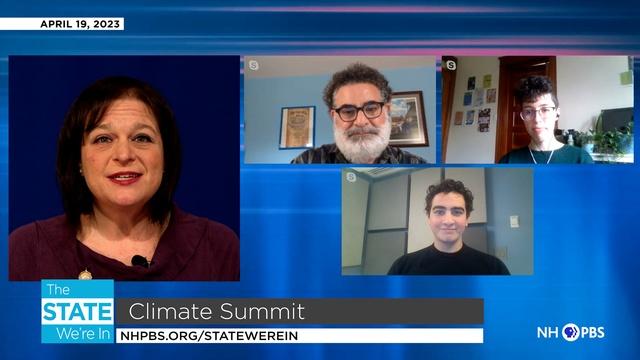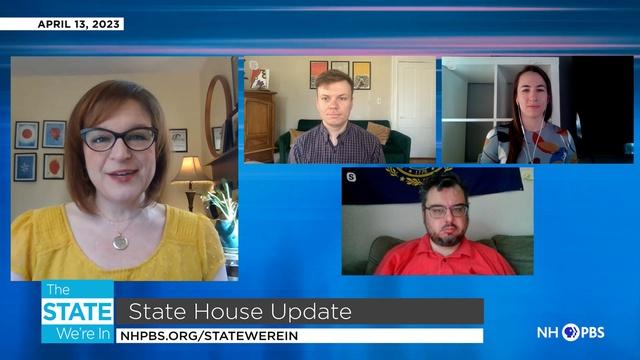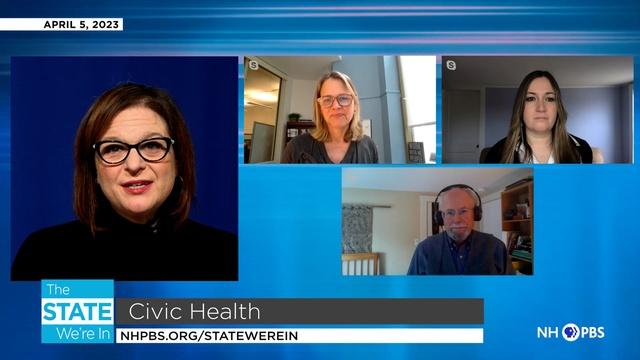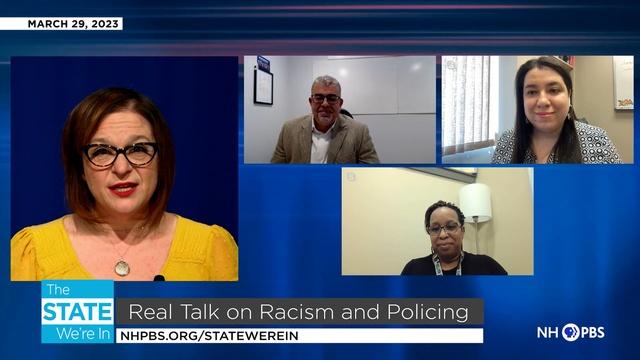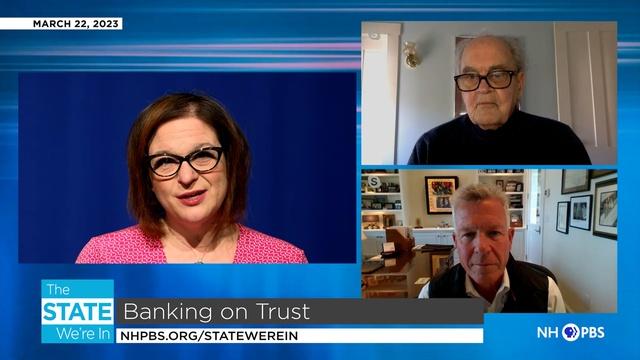Education Inequity in the Granite State
Q & A Transcript with the reporting team behind the series
GSNC/NHPBS
The State We’re In Program - Q & A Transcript
Recorded 9/21/21
Among the many adjustments made in the wake of the COVID-19 pandemic, New Hampshire schools are still facing many challenges. The Granite State News Collaborative has launched a new education series focused on inequity and how the education system is evolving in school districts across the state. Reporter Meg McIntyre, Project Editor Rosemary Ford, and Data and Research Editor John Bassett discuss their data and findings about education inequity and what is being done to address it with The State We’re In host Melanie Plenda.
This content has been edited for length and clarity. Watch the full interview on NH PBS's The State We’re In
Melanie Plenda: Meg, tell us a little bit about the goal behind this project.
Meg McIntyre: Just like in other places across the country, inequity has existed in our education system for a very long time. Because New Hampshire is not as diverse as other states, the way that the system affects students of color, students with disabilities, and English language learners is often overlooked. We're trying to explore where those inequities exist, but also the solutions that are being developed to respond to them.
Melanie Plenda: John, can you talk to us a little bit about your research and the data portion of this project? What is education inequity, and what have you learned so far about its presence in New Hampshire schools through the data that you've looked at?
John Bassett: Inequity can be measured in lots of different ways, and I was working a lot with New Hampshire Department of Education data and a data set from Stanford's Educational Opportunity Project to help give some concrete background for the stories that Meg and Rosemary were collecting. One of the primary ways that inequity is measured is through differences on achievement, on standardized tests. We also know that there are lots of other measures of achievement that Meg is looking into now. Other stories on inequities cover the opportunities that students have when they walk in the door, and things like that. Those are some of the things that I'm contributing to the project to help bolster Meg's great reporting.
Melanie Plenda: Meg, what are some of the challenges that schools are facing when it comes to the demographics that are shifting and the different populations in schools? Are schools reflecting that changing demographic in the way they teach, or who they have to teach? What have you found so far?
Meg McIntyre: Schools are certainly facing a lot of challenges right now, not least of them being the COVID-19 pandemic and trying to reopen schools and keep them open. That's the backdrop for all of these other issues that have been discussed for a very long time in our system. Chief among them is our funding; there is a court case winding through the courts right now, related to what that really means to fund an adequate education for students in New Hampshire. Right now, the state provides a baseline of about $3,800 per student, but in reality, most schools spend $15,000 or more to educate a single student. This really creates inequalities because of the fact that it's so reliant on property values to bridge that gap. If you have a community with really low property values, they have a much smaller tax base to draw from.
Beyond that, there are so many changes potentially on the horizon right now for our education system in New Hampshire. With the launch of the Education Freedom Accounts Program, a voucher program, it allows students to take a grant of state funding to either a private school or to use for homeschool expenses. We're waiting to see how that's going to impact public schools. There are a lot of concerns about the funding there and what impact that will have on our public school students. At the same time, we have these discussions going on about curriculum, and how things should be taught in the classroom, and what exactly should be taught in the classroom.
Melanie Plenda: Rosemary, how are you all trying to get the community involved in helping to contribute to your reporting?
Rosemary Ford: We're doing something we've never done before, and that is setting up a closed Facebook group which we're calling Teachers Off the Record. What we're hoping is that we'll find a group of teachers who would like to be part of this group and have a discussion about education in New Hampshire, the stories that we're doing, future stories, and even ideas for stories. We've also put together a survey for students that we like to share with everyone. Through that survey, we'd like to get in touch with students and talk to them about their own experiences with education in the classroom so they can also contribute to this series in whatever way that they'd like to. We're really focusing on bringing the community into every aspect of this so that we can really make the whole series about the community and their experience about education locally, as well as statewide.
Melanie Plenda: Meg, you mentioned earlier about looking towards solutions to some of these issues in particular. I know when it comes to race, you did a piece focused on Exeter's Racial Unity Team. Can you talk to us just a little bit about that and give us a preview of what we see in that story?
Meg McIntyre: We're really excited about this story because it really highlights how schools are trying to shift their approach and perspective when it comes to teaching about race, teaching about inequity, and teaching about justice. This is a project that was a collaboration between the nonprofit Racial Unity Team, Exeter, and Exeter high school to bring virtual artists in residence to the classroom to talk about these topics with students. It was combined with their teaching of To Kill a Mockingbird, the classic book that is used in many high school classrooms across the country, but they worked to reframe the way that they were teaching that book, looking instead at the voices that weren't being included rather than the perspective that was prioritized - the perspective of a white woman in the book. They used this to do their own research projects on topics around justice and change.
Some students decided to focus on topics related to race. One student looked at the social construction of race and how that compares to our biological knowledge. Another student created a toolkit for educators to diversify their bookshelves. There were a wide range of other topics as well that these students focused on, from sports dress codes for girls, to writing poetry, to expressing your experience going through the pandemic as a person of color. This is a program that the Racial Unity Team is hoping to bring to other schools and adapt to their specific curriculum and their specific needs, but the goal really is to help students find their voice around some of these issues and learn how to express themselves, not just through writing in the written word, but through artistic means as well.
Melanie Plenda: What can we expect to see from the Collaborative’s education series going forward? Can give us a sneak peek of what we're looking at next?
Rosemary Ford: Some of our future stories have to do with looking at the achievement gap and what's available at different schools, comparing the opportunities students receive in their respective district. For example, in some schools students begin learning a foreign language in kindergarten; in other schools they've had to eliminate some of their language teachers due to budget cuts. That represents a huge opportunity gap there for students. We're going to take a look at the achievement gap and the different aspects of what sorts of opportunities are available in a variety of different districts.
We're also going to take a look at teaching processes like leveling - leveling is about putting students in different tracks. Some may be familiar with honors classes or AP classes and then having other levels below them, like a college preparatory level or basic level. There's a discussion in education circles looking at whether or not those types of tracks are helpful for students in terms of encouraging them to achieve at their full potential.
We're also going to be looking at the voucher system that Meg previously mentioned that New Hampshire is going to start implementing. We're going to also look at how schools discipline children and how those discipline scenarios play out in terms of detentions or getting involved with police or the court system, and how that all works from school system to civil system.
These articles are being shared by partners in The Granite State News Collaborative as part of our race and equity project. For more information visit collaborativenh.org.
Watch Online
Educational Standards
A look at proposed revisions to the state's educational standards, also known as 306s.
Return to the
The State We're In
Main Page
Support for The State We're In is provided by New Hampshire Charitable Foundation, Eversource and Hitchiner Manufacturing Co., Inc.
The State We're In is produced in partnership with the Granite State News Collaborative and the students and staff of the Marlin Fitzwater Center for Communication at Franklin Pierce Unversity in Rindge, NH.
Housing Solutions
Host Judi Currie speaks with community planners and affordable housing advocates.
April 8 Solar Eclipse
Host Melanie Plenda talks about the upcoming eclipse with guests.
2024 Local Elections
Host Judi Currie speaks with several experts on the key issues surrounding the election.
Impact of Climate Change on Skiing in NH
Melanie Plenda speaks with freelance journalist Beatrice Burack about her series.
Poverty & Food Insecurity Following the Pandemic
Poverty and food insecurity rates here before, during and after the pandemic.
What to Know About AI in NH
Host Melanie Plenda discusses the ins and outs of artificial intelligence.
Young Legislators
State Reps. Jonah Wheeler and Valerie McDonnell join host Melanie Plenda.
Lessons from the Primary
Secretary of State David Scanlon discusses the New Hampshire primary.
Your Right to Know
We discuss HB 1002, which would allow public bodies and agencies to charge up to $25/hr.
Medical Aid in Dying
The NH House Judiciary Committee will hold a hearing on HB1283.
After the Primary
A discussion about the NH Primary results.
First-in-the-Nation Primary
We talk to veteran reporters about the upcoming New Hampshire Primary.
Getting Ready for the Primary
The New Hampshire presidential primary will take place on January 23rd.
Asset of Diversity
Members of the Business Alliance for People of Color discuss how diversity can be an asset
2023 - Compelling Quotes
The best quotes from 2023.
2023 in Review
A look back at "The State We're In."
Nature's Super Bowl
Learn about two upcoming eclipses with prime viewing spots in New Hampshire.
Food Insecurity
Staffers from the NH Food Bank discuss food insecurity in New Hampshire.
NH School Funding
Learn about the recent ruling that could change the way public schools are funded in NH.
Harvesting Climate Change
Melanie Plenda speaks with local agricultural experts about climate change.
Looking at NH Gun Laws
New Hampshire's gun control laws and preventing a mass shooting.
Local Elections
The importance of local elections and how to prepare for them.
Talking About War
How do you talk to kids about gun violence and war?
State House Update
Citizens Count's Anna Brown discusses some of the bills the state Legislature will tackle.
Digital Equity
Bridging the digital divide in New Hampshire.
Fall Health Outlook
Infectious disease expert Dr. Michael Calderwood talks about the fall health outlook.
Education Standards
A look a proposed revisions to the state's educational standards, also known as 306s.
Radically Rural Returns
The popular small town summit is back for a sixth installment.
Difficult Conversations
Different approaches to the same goal.
Money Matters
More New Hampshire residents are finding it difficult to afford everyday expenses.
Bears in the backyard
More bears are showing up in backyards and social media feeds.
Housing in NH
The 2023 NH Residential Rental Cost Survey Report and what it means for NH residents.
The State of Journalism
Host Melanie Plenda talks through the state of journalism in New Hampshire.
Student Loans
Host Melanie Plenda talks with Financial Aid Professional and a recent grad about debt.
NH Legislature ends its session
Host Melanie Plenda talks with Citizens Count's Anna Brown.
Mt. Washington Observatory Summer Forecast
Host Melanie Plenda speaks with scientists from the Mount Washington Observatory.
Neo-Nazis in NH
Host Melanie Plenda talks about combating hate and misinformation around a drag story hour
Guns & Violence -- What can we do?
Host Melanie Plenda looks for common ground from two perspectives.
Asphalt Plant Concerns
Hear concerns about a proposed asphalt plant in Nashua, which has residents worried.
NH Gives
We discuss NH Givens, a day of fundraising for hundreds of New Hampshire nonprofits.
Kids & Cellphones
How young is too young for a cellphone?
Ticks!
Find out what's going on with the tick population in the Granite State.
NH Quality of Life Survey
New Stay Work Play quality of life survey explores satisfaction among young people.
By Degrees Climate Summit
Explore highlights and key takeaways from the April 2023 By Degrees Climate Summit.
State House Update
What's happening in Concord this session?
Civic Health
How robust is our civic health in New Hampshire?
Real Talk on Racism and Policing
We discuss a recent community conversation.
Banking on Trust
Two financial experts discuss what's happening in the banking industry.

